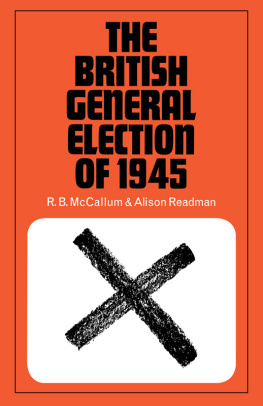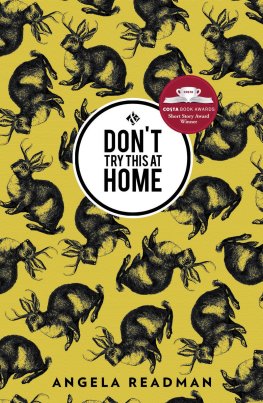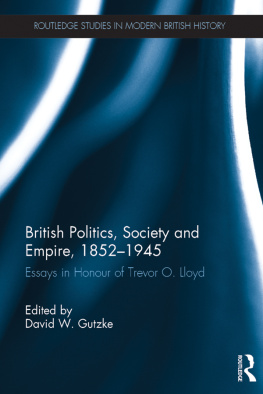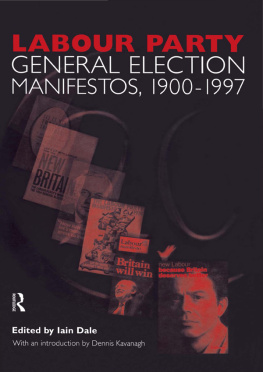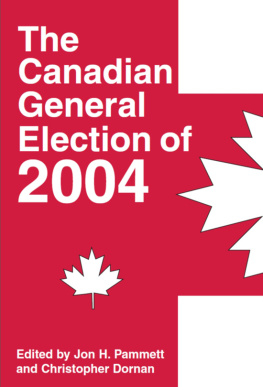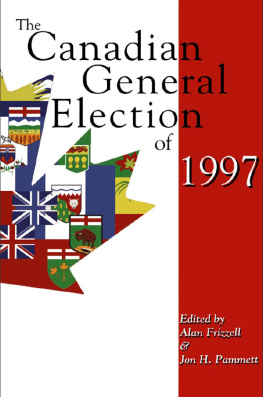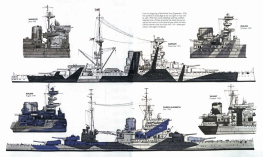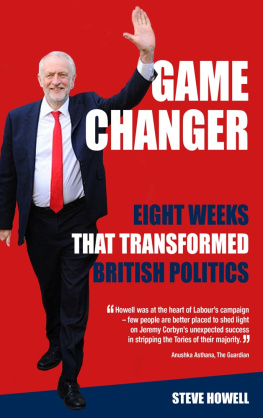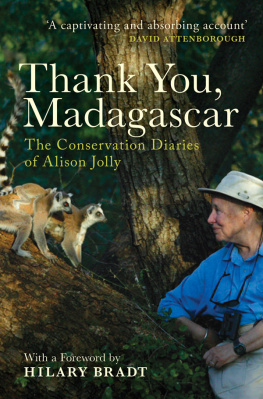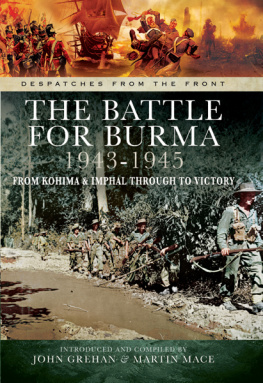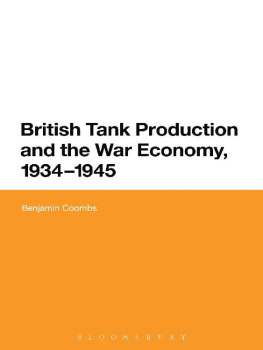THE BRITISH
GENERAL ELECTION
OF 1945
THE BRITISH
GENERAL ELECTION
OF 1945
R.B. McCallum and
Alison Readman
First published in 1947 by
Oxford University Press.
This edition published by Taylor & Francis
2 Park Square, Milton Park, Abingdon, Oxon, OX14 4RN
711 Third Avenue, New York, NY 10017
First edition 1947
Second impression 1964
Transferred to Digital Printing 2006
ISBN: 978-0-714-61566-0 (pbk)
ISBN: 978-1-136-24688-3 (ebk)
Publishers Note
The publisher has gone to great lengths to ensure the quality of this reprint but points out that some imperfections in the original may be apparent
Foreword
By the Warden of Nuffield College
S OCIAL studies have undergone a change in the present century. The characteristic methods of the last century were such as to permit the student to work effectively without drawing on any outside resources except a good library; in recent years there has been a shift towards a more historical and statistical approach. The accumulation of factual data and the development of statistical and other methods of handling them confront the student with a new challenge and a new opportunity; he can hopeand is bound to tryto substantiate his conclusions by a factual survey more nearly exhaustive than he could have attempted a generation ago. But this change, while it abbreviates argument and accelerates agreement, makes social research far more expensive of time and money; the routine work of collecting and analysing returns, often with a negative result, and the mere clerical work involved in any important inquiry, are beyond the unaided capacity of an individual worker. It was one of the hopes of the pioneers of Nuffield College that they might be able to help scholars who wished to undertake research which called for this kind of help.
An opportunity was offered by the suggestion that the first post-war General Election should be made the subject of a study. Much of the material for such a study, Election Addresses, and still more the evidence of contemporary opinion, is ephemeral and hard to come by if plans are not made beforehand and the work undertaken before it is dispersed. Mr. McCallum, who made the suggestion, became a Faculty Fellow of the college in June 1945, and was willing to undertake the inquiry. The college welcomed the proposal. They met with a cordial response wherever they turned for assistance. The inquiry has been a useful experiment in associating young graduates, and even undergraduates, with this kind of research.
The resulting book is its own justification; my object in this note is only to explain the circumstances in which it came to be written, to point out that it involved a great amount of work which was necessary but does not appear on the surface, and to record the colleges indebtedness, first, to Mr. McCallum and Miss Readman for the energy and enthusiasm they brought to their task, and next, to all the political workers and others who so readily gave them help.
H. C.
Nuffield College,
Oxford.
Preface
I N presenting this book to the public we desire to express our thanks to the Warden and Fellows of Nuffield College for encouraging and enabling us to write it, and to the Warden for not only writing the foreword but also giving us help and advice at all times. We are indebted to Mrs. Broadley and Mrs. Kilpatrick and to the staff of Nuffield College for their assistance.
We also gratefully acknowledge the help given to us by a number of members of Oxford University, senior and junior, who have engaged in the difficult work of examining the election addresses, party literature, and the press. Mr. Andrew Ensor of New College directed the study of the addresses, assisted by Mr. C.J. Holloway of New College, Mr. P. Macnair of St. Edmund Hall, Mr. P. Sloman of New College, Mr. M. Nadin of Pembroke College, Mr. M. Foot and Mr. Peter Campbell of New College, Mr. F. Morley of St. Edmund Hall, and Captain Keith of the Oxford University Senior Training Corps. To Mr. D.E. Butler of New College we are particularly indebted for his valuable work on the statistics of the election in Appendixes III and IV, and to Mr. D.G. Champernowne, Reader in Statistics in the University and Fellow of Nuffield College, and to Mr. P. W. S. Andrews of the Research Staff of Nuffield College for advising Mr. Butler in this work.
Mr. J. Edwards, Assistant Town Clerk of Oxford, and Mr. Hamilton, Sheriff Substitute of Renfrewshire, were good enough to give us information on returning-officers duties, and Mr. Douglas Veale, Registrar of Oxford University, helped us with his advice on the procedure of University elections. Mr. F. H. Lawson, Fellow of Merton College, assisted us with his knowledge of electoral law in general.
We have received the most courteous assistance from the central offices of the various parties and from the editors of many newspapers, from candidates, and other public men. Mr. Silvey of the British Broadcasting Corporation was good enough to give us an interview on the question of the reception of the election broadcasts and Mr. R.G. Cruickshank of the NewsChronicle on the Gallup Polls and other matters. We desire more especially to acknowledge the permission given to us to print the cartoons reproduced from the Evening Standard, Daily Herald, News Chronicle, Daily Mirror, and Daily Express. We also desire to acknowledge the permission given us by the Publications Departments of the Conservative, Communist, and Labour parties to reproduce their posters and cartoons. The willingness of politicians and journalists of all parties to provide us with information has been indeed gratifying and we venture to take it as a tribute to the spirit in which political studies are carried on at this and other Universities that material, which might be used in a partisan sense, has been so generously entrusted to us. We hope we have not abused it, for it has been our resolve to maintain impartiality throughout the book. If we have failed, as may well be thought, to achieve our aim, we would like to make it clear that we alone are responsible for all statements made in this book and that neither Nuffield College nor any other institution, academic or political, can justly be visited with our errors.
| R. B. McCallum |
| Nuffield College, | Alison Readman |
| Oxford. |
26 July 1946 |
Introduction
T HE DUKE OF WELLINGTON once observed that you could no more describe a battle than you could describe a ballroom. Still less, it might be said, can you describe a general election. Twenty or more million people give their votes under every variety of circumstances and from innumerable motives. They may be impressed by the party, by its leader, by the local candidate. They may be moved by hope or fear for the public good or for their own material interest; they may be exalted by ideals or inflamed by rancorous hatreds. The discomfiture of opponents may be a more powerful incentive than loyalty to their own colours. Every consideration of class, creed, or family tradition may make its influence felt by attraction or antagonism. Many will follow the general course of their families, friends, or fellow workers, while others may be moved more by reaction against their nearest associates. Public opinion, as a matter of study, remains a mystery and in seeking to understand it one must be content with approximations to truth and imperfect deductions from infinitely complex evidence. One thing is certain about such an event as a general election. It is not simple.


